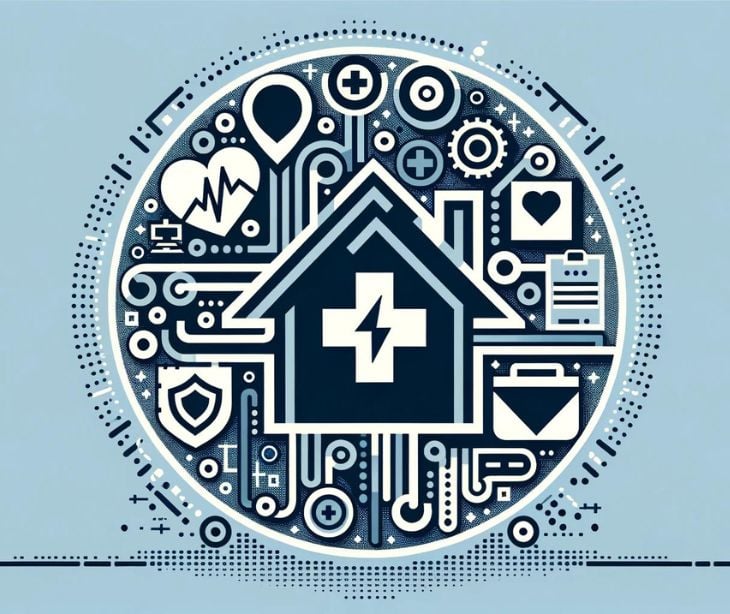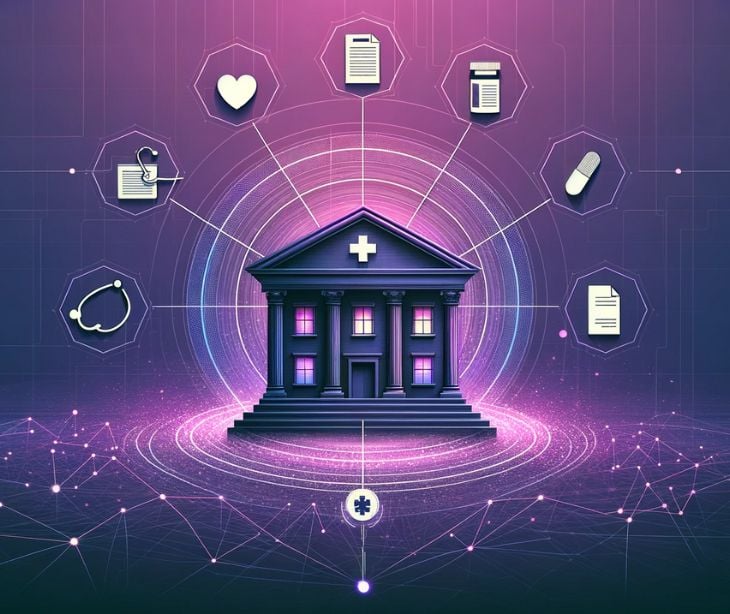
HIPAA defines a healthcare clearinghouse as an entity that processes and standardizes health information related to medical billing and insurance claims.
A clearinghouse is a necessary intermediary in the claims process, ensuring the accuracy and efficiency of bills and payments. Clearinghouses streamline operations and reduce errors by standardizing health information and facilitating communication between healthcare providers and health plans.
Related: HIPAA Compliant Email: The Definitive Guide
Understanding the HIPAA definition of a healthcare clearinghouse
According to the HIPAA Administrative Simplification Regulations, a healthcare clearinghouse is a public or private entity, including a billing service, repricing company, community health management information system or community health information system, and 'value added' networks and switches that does either of the following two things:
- Processes or facilitates the processing of health information received from another entity in a nonstandard format or containing nonstandard data content into standard data elements.
- Receives a standard transaction from another entity and processes or facilitates the processing of health information into nonstandard format or nonstandard data content for the receiving entity.
These functions ensure that claims information is presented in a consistent, well-understood, and submittable format. A standardized conversion is necessary because many healthcare providers and health plans use incompatible software systems. A healthcare clearinghouse acts as a third-party intermediary between healthcare providers and health plans (i.e., health insurers), allowing for smoother communication.
Most importantly, these organizations must work directly with protected health information (PHI). In fact, healthcare clearinghouses are classified as such because their sole role is related to PHI.
Finding a healthcare clearinghouse
Your chosen clearinghouse should offer a simple electronic system for submitting, processing, and receiving claims and a low error rate. The entire process should be fast and should result in fewer denied claims.
Some clearinghouses specialize in types of healthcare claims data, such as pharmacy, dental, inpatient, and outpatient claims, or might be regional rather than national in scope. So make sure the clearinghouse you work with is national in scope and has a broader focus.
A clearinghouse must be secure and HIPAA compliant because it would handle PHI. What the HIPAA compliant features look like depends on its size and needs but would more than likely include:
- Signing a business associate agreement
- Secure storage
- Offline backup
- Physical and technical safeguards on devices and systems
- Data encryption
- Multiple access controls
- Breach policies/procedures
FAQs
What is the primary function of healthcare clearinghouses?
The primary function of a healthcare clearinghouse is to review and validate healthcare claims from healthcare providers before forwarding them to health plans for payment. Healthcare clearinghouses prescreen medical claims; once done, the clearinghouse securely transmits the data to the necessary party over a HIPAA compliant connection. The process identifies and rectifies errors and inconsistencies, ensuring accurate and timely reimbursement.
Are healthcare providers required to use a clearinghouse?
No, healthcare organizations are not required to use clearinghouses to process claims. Many choose to work with clearinghouses because of the benefits offered, such as:
- Eligibility verification
- Electronic remittance advice
- Ability to handle medical claims in a variety of forms
What are some benefits of using a healthcare clearinghouse?
Using a healthcare clearinghouse has several benefits beyond streamlining the claims process, including:
- Reducing errors
- Standardizing information for improved compatibility
- Accelerating reimbursements
Healthcare clearinghouses ensure claims are correct and delivered accurately for billings and payment.
When does a clearinghouse qualify as a covered entity?
A clearinghouse is a covered entity when it processes health information for another legal entity.
The U.S. Department of Health & Human Services points to an interactive PDF flowchart from the Center for Medicare and Medicaid Services to determine if an organization is a covered entity.
Related: FAQs: Business associate agreement (BAAs)
How do clearinghouses ensure the security of medical data?
Healthcare clearinghouses can ensure the security of medical data (i.e., PHI) by complying with HIPAA regulations, including the Privacy Rule, Security Rule, and Breach Notification Rule. HIPAA compliance involves continuously updating security measures to protect sensitive data and keep PHI from getting into the wrong hands.
Healthcare clearinghouses must implement policies, procedures, and safeguards to protect the privacy and security of PHI, train employees on HIPAA requirements, conduct risk assessments and audits to identify vulnerabilities, and establish processes for responding to breaches or complaints related to HIPAA compliance.
Subscribe to Paubox Weekly
Every Friday we bring you the most important news from Paubox. Our aim is to make you smarter, faster.




